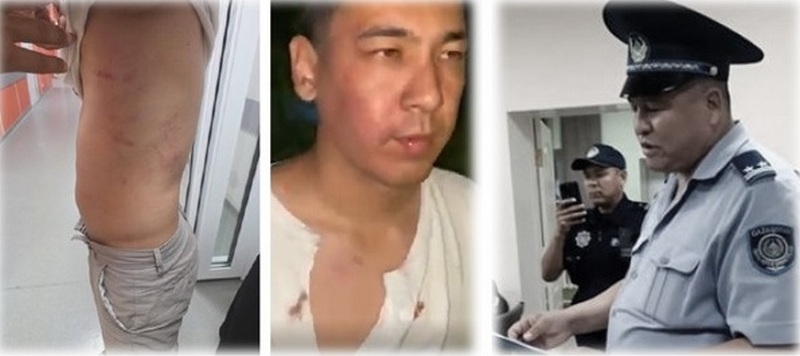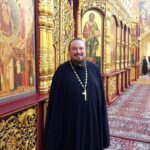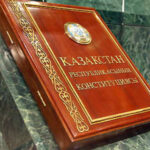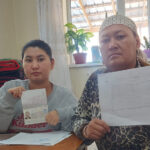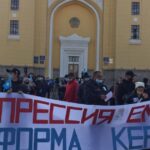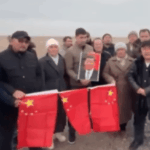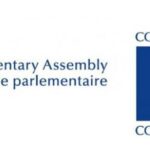Despite documented injuries and a court ruling against prosecutorial inaction, no police officers have been held accountable after torturing Daniyar Tursynbayev after his interrogation in August. Instead Tursynbayev now risks fines, deportation, and separation from his family.
On 13 August, police in Kentau, Turkestan region, detained Daniyar Tursynbayev, an Uzbek national legally residing in Kazakhstan and a member of the Jehovah’s Witnesses. He was officially detained under Administrative Code Article 490(3), which prohibits missionary activity without state approval.
According to Tursynbayev and his lawyers, during a six-hour interrogation he was beaten, threatened with murder and deportation, and forced to sign a confession of “illegal missionary activity.” Medical examinations later documented a broken rib and other injuries. According to the victim, the deputy head of the Kentau police, Mr Baglan Yankin, took part in the beating.
Shortly after the interrogation, Tursynbayev’s lawyer filed an official complaint with the Kentau Public Prosecutor’s Office. The office refused to open an investigation and transferred the case to the Turkestan Regional Police, which also failed to respond.
On 28 August, the Kentau City Court ruled that the prosecutor’s inaction was unlawful but declined to order a proper investigation. To date, none of the implicated officers have faced accountability.
Ongoing Judicial Complications
Meanwhile, Tursynbayev’s legal troubles have continued. On 8 September, the police filed an administrative case against him under the same Article 490(3). The court hearing was originally scheduled for 15 September. If found guilty, Tursynbayev could face a fine equivalent to two months’ average wages and deportation to Uzbekistan, separating him from his wife and their newborn daughter, both Kazakh citizens.
His lawyers successfully postponed the hearing to a later date, which will now take place in an Almaty court.
A Threatened Congregation
Tursynbayev’s case is part of a broader pattern of pressure on Jehovah’s Witnesses in Kentau. In July, the Kentau Akimat attempted to suspend the activities of the local congregation through the courts, but the case was dismissed on technical grounds.
On 13 August, the same day Tursynbayev was interrogated, police raided a worship meeting of the congregation, detaining three members for several hours before releasing them without charges. The raid was led by the aforementioned police chief.
While authorities claimed they were acting on complaints from neighbours, Jehovah’s Witnesses describe the raid and earlier suspension attempt as systematic intimidation, aimed at restricting the community’s legally guaranteed right to worship.
Kazakhstan’s obligation
Kazakhstan is a party to the UN Convention against Torture, which obliges the state to investigate and punish any use of torture and to protect victims from further abuse. Despite this, none of the police officers in Kentau have been investigated or prosecuted.
Moreover, Kazakhstan has also established a National Preventive Mechanism (NPM) to monitor places of detention and respond to torture allegations. Yet in this case, the NPM and other authorities in Astana have failed to act or even reply to inquiries from victims and their lawyers.
Jehovah’s Witnesses fear that a possible deportation of Tursynbayev could be used to conceal the torture allegations already raised against the police. “This is not just an attack on one person, but an attempt to intimidate the entire religious community,” they say.
Recent Developments
Following appeals by the Kazakhstan International Bureau for Human Rights to Prosecutor General regarding clear breaches of UN obligations, the police have been compelled to open an investigation into Tursynbayev’s beating.
Whether this investigation will be impartial and lead to accountability remains uncertain. For now, Tursynbayev and his family live under the shadow of possible deportation and continued harassment, while the wider Jehovah’s Witness community in Kazakhstan fears further persecution.
The situation with Jehovah’s Witnesses in Kazakhstan. Briefly
There are about 20,000 Jehovah’s Witnesses living in Kazakhstan. In recent years, compared to the past, a small number of members of the Jehovah’s Witnesses community have been fined for talking about God on the street. Previously, this was often considered illegal missionary activity, but now it is considered harassment of passers-by, which is punishable by a small fine. At the same time, the Christian community of Jehovah’s Witnesses has won several rulings in its favour from the UN Human Rights Committee and the UN Working Group on Arbitrary Detention in response to complaints against the Republic of Kazakhstan. A number of other complaints are still under consideration.

